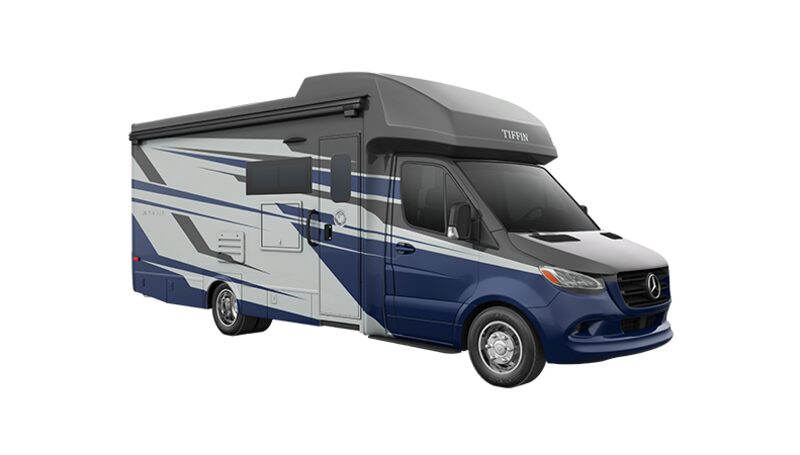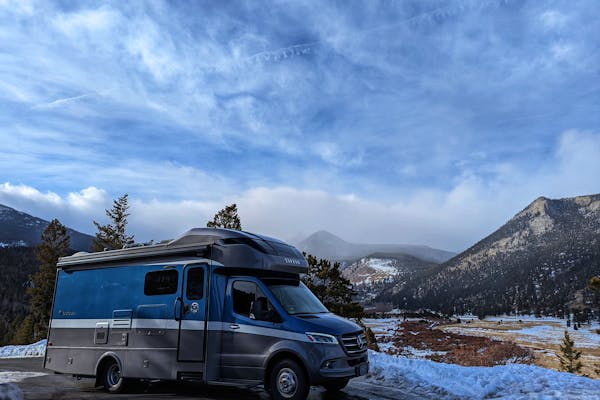Like many outdoor enthusiasts, our camping adventures started with a car and a tent. After a few years, we upgraded to an RV and fell in love with the ability to bring all the comforts of home with us. Even though we’ve transitioned from tent camping to RVing, we still enjoy going on long hikes and sleeping under the stars, and have found a way to seamlessly blend both lifestyles.
Here we outline how tent camping and RVing can be combined, how you can use your RV as a basecamp and some special considerations when planning a similar-style camping trip.
Access More Remote and Challenging Trails
One of the biggest benefits of using your RV as a basecamp for backcountry adventures is that it allows you to access more remote and challenging trails. You no longer have to keep your hiking to daylight hours or even a single day trek. With your “home” nearby, you can go farther and stay out longer. We love being able to bring tents with us on our hikes and stay out for a few nights before returning to our RV. Many RV campsites are also conveniently located near trailheads or access points, so you can be one of the first hikers on the trail. This often allows you to see places with stellar views and less people. With an RV, you don’t have to be restricted to stay within a certain radius from your sticks and bricks or need to book hotels around your adventuring.
Linking Multiple Adventures Together
Another advantage of using your RV as a basecamp is the ability to connect multiple adventures in one trip. For instance, one of our favorite trips was when we combined a tenting and RVing trip in Canyonlands. We booked an RV campsite that had access to nearby trails, and then we took our time hiking down into the canyon. We camped for a couple of nights in the canyon before returning to the RV to refuel. After taking a shower, getting a good night's sleep, and re-packing fresh clothes and food, we went back out to tent camp at another slot canyon. And while it is possible to backpack for multiple nights, we found that by splitting it up, we were able to take our time, enjoy more of the scenery, do different activities, and keep our packs lighter.
Food Storage and Preparation
One of the biggest challenges of tenting and backpacking is being able to bring enough healthy food, and keeping that food fresh and safe from wildlife. While we always have a bear-proof canister with us, it can be challenging to pack food for longer than a few days. Plus, carrying food and trash can get heavy! Having an RV nearby that is fully stocked and temperature-controlled is a huge perk. You can bring however much food you’ll need for a day or two, and then return to the RV to reload before you head back out. Plus, nothing beats being able to have ice cream on a summer camping trip.
Gear Storage
On an RV backpacking trip, you have the luxury of bringing more gear with you. You don’t have to limit yourself with the activities you can do. Do you want to spend a day fishing and rafting, another day mountain biking, and the last day taking pictures and hiking with your dogs? No problem! Most RVs are equipped with exterior or underbelly storage, allowing you to store your gear without taking up valuable interior space. Our Tiffin Wayfarer even has waterproof storage for all of our wet and dirty outdoor gear. Additionally, you can lock your storage bays and keep your gear safe and secure while you’re out.










